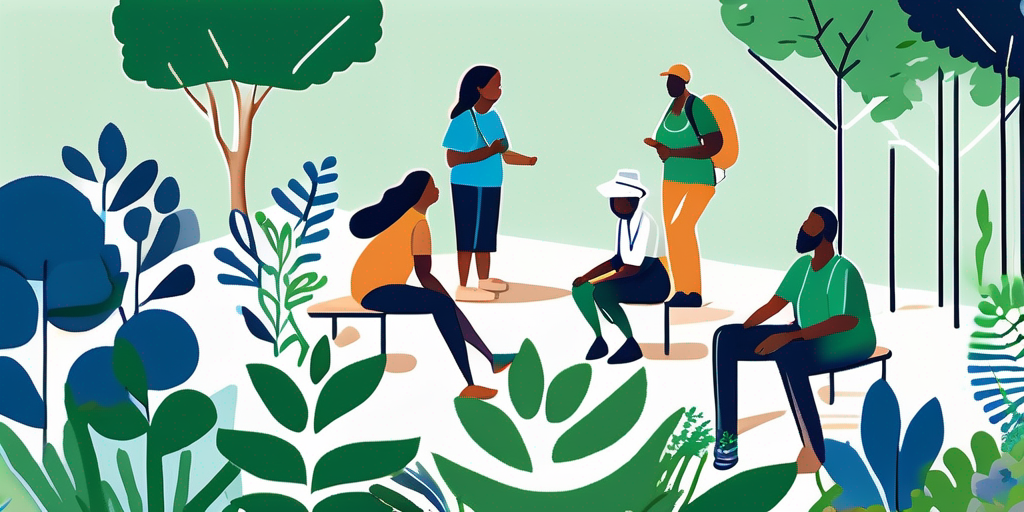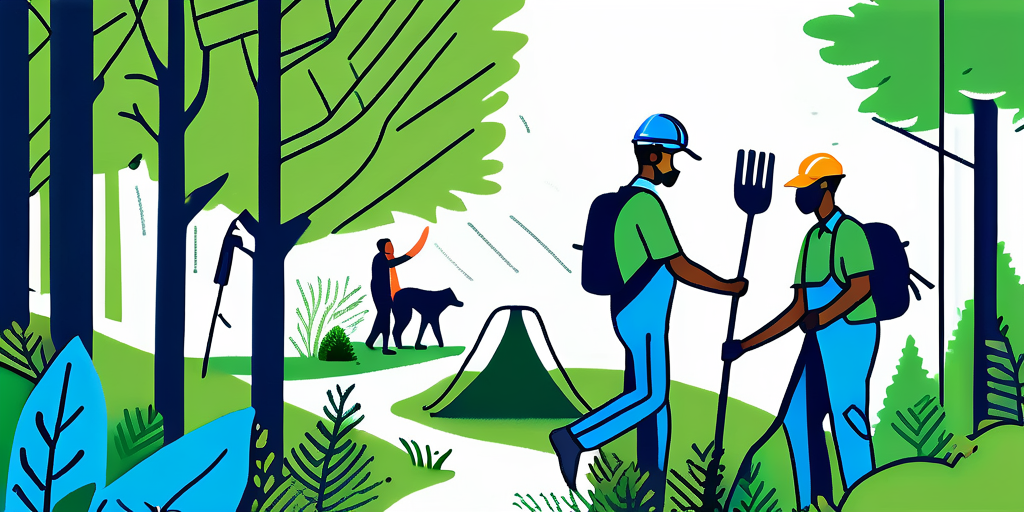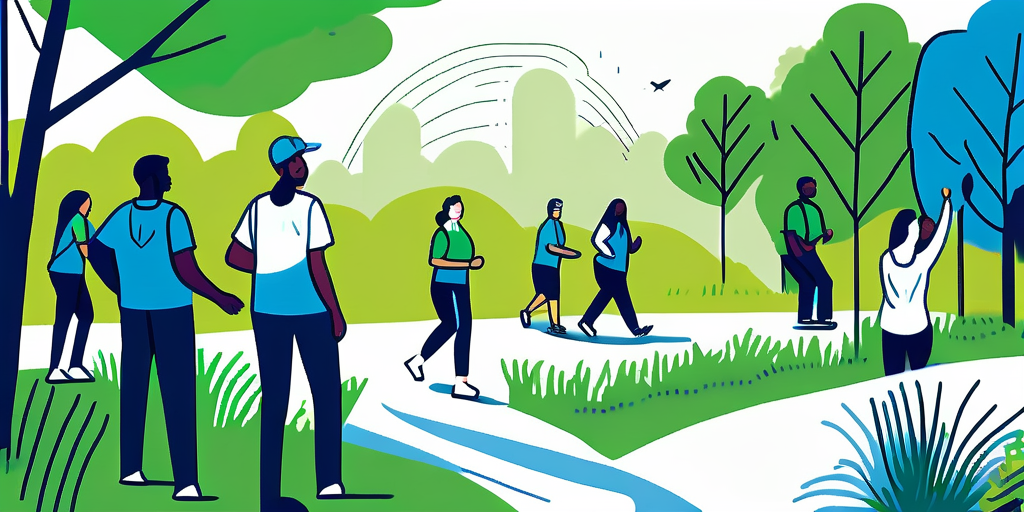
Volunteerism plays a crucial role in building community relationships, enriching the lives of those involved, and creating lasting bonds among individuals. At Tennessee National, a showcase of natural beauty and landmark community interactions, volunteer opportunities are plentiful. This article explores the essence of volunteerism, various roles available, the application process, and the profound personal and social benefits that arise from being part of such initiatives.
Volunteerism is more than just offering time and skills; it is a commitment to fostering a community spirit and contributing to the well-being of others. Through volunteer work, individuals can connect deeply with the communities they serve, forming relationships built on mutual respect and shared goals.
At its core, volunteerism embodies the selfless act of giving time and effort without the expectation of receiving monetary compensation. It involves people from various backgrounds coming together to address community needs, whether through environmental clean-ups, teaching literacy skills, assisting at local shelters, or organizing events. This collaborative nature of volunteering can lead to the formation of meaningful connections, as volunteers often share similar values and aspirations.
Moreover, volunteerism can instill a sense of collective responsibility. When individuals contribute their skills and resources, they invest in the future of their community, reinforcing the belief that everyone has a role to play in enhancing society. This sense of duty not only empowers volunteers but also inspires others to join in, creating a ripple effect that can lead to widespread community engagement and improvement.
Tennessee National is not just a scenic paradise; it thrives on the active involvement of its inhabitants through volunteerism. The park’s natural beauty encourages a sense of stewardship, urging visitors and residents alike to engage in its preservation and enhancement. Volunteer efforts here tackle various issues ranging from conservation projects to community health initiatives.
Moreover, as Tennessee National’s volunteer programs aim to make the environment and community more welcoming and sustainable, they foster a culture of inclusivity. This contributes to a stronger community identity and creates a welcoming atmosphere where individuals can form lifelong friendships. The diverse range of volunteer opportunities available allows people from all walks of life to contribute their unique talents, whether it’s through artistic endeavors like mural painting or practical skills such as landscaping and gardening.
Additionally, Tennessee National’s volunteer programs often incorporate educational components, allowing participants to learn about local ecosystems, wildlife conservation, and the historical significance of the area. This not only enriches the volunteers' experience but also equips them with knowledge that they can share with others, further promoting awareness and appreciation for the natural world. Engaging in such activities can transform volunteers into advocates for their environment, encouraging them to spread the message of sustainability and community involvement beyond the park's borders.
Tennessee National offers a rich tapestry of volunteer roles, each tailored to meet diverse interests and skills while addressing community needs. Let's delve into the various volunteer opportunities available at this locale.

Each volunteer role at Tennessee National comes with specific responsibilities aimed at promoting a harmonious environment. Some popular volunteer roles include:
By participating in these roles, volunteers not only help to carry out essential tasks but also create a sense of accountability in their communities while showcasing their talents. Each role is designed to foster a spirit of teamwork and collaboration, encouraging volunteers from various backgrounds to come together for a common purpose. Whether it's the thrill of organizing a large community event or the satisfaction of seeing a well-maintained trail, volunteers find fulfillment in their contributions.
Every volunteer role at Tennessee National has a distinct impact on both the environment and the community. A Park Steward’s work in habitat preservation contributes substantially to local biodiversity, while Community Educators empower individuals through knowledge transfer.
Furthermore, by participating in event coordination, volunteers help strengthen social ties among community members, urging them to engage more actively with their surroundings. Fundraising efforts back these initiatives, highlighting the community’s ability to rally for common causes. Every role contributes to a rich fabric of support that enhances the Tennessee National experience. Additionally, these volunteer opportunities often lead to personal growth, as individuals develop new skills, build lasting friendships, and gain a deeper appreciation for the natural world. The shared experiences among volunteers foster a sense of belonging and pride, reinforcing the idea that everyone can make a difference in their community.
Moreover, the impact of these roles extends beyond immediate community benefits. Volunteers often become advocates for environmental stewardship, inspiring others to take action and participate in conservation efforts. Through their dedication, they help cultivate a culture of sustainability that resonates throughout Tennessee National and beyond. The ripple effect of their work can lead to increased awareness and support for conservation initiatives, ensuring that future generations can enjoy the beauty and resources that Tennessee National has to offer.
For many, the journey of becoming a volunteer is a rewarding process filled with opportunity and personal growth. Understanding how to become actively involved can help pave the way for aspiring volunteers.

The eligibility criteria for volunteering at Tennessee National are straightforward. Generally, individuals aged 16 and above can apply, although specific roles may have tailored requirements based on age, skills, or experience. The application process begins with filling out a registration form, which can typically be found on Tennessee National's official website.
Once your form is submitted, an orientation interview is often scheduled to assess skills and interests, ensuring volunteers find roles that resonate with them. This interview process not only confirms eligibility but also sets the stage for belonging and connection within the Tennessee National community. Additionally, volunteers are encouraged to share their personal motivations for wanting to contribute, which helps the coordinators align their passions with suitable projects, fostering a deeper commitment to the cause.
Upon acceptance, new volunteers participate in an orientation program designed to prepare them for their roles comprehensively. This training often includes tutorials on safety protocols, role-based responsibilities, and insights into the community's values and the ongoing projects at Tennessee National.
Engaging in this preparatory experience equips volunteers with the tools necessary for effective community service. At the same time, it also provides an excellent opportunity to meet fellow volunteers, creating friendships even before the work begins. The orientation may also feature guest speakers from various departments within Tennessee National, who share their experiences and the impact of volunteer work on the community. This not only enriches the training experience but also inspires new volunteers to envision their potential contributions and the lasting difference they can make through their efforts.
Moreover, the training sessions often include hands-on activities that simulate real-life scenarios volunteers might encounter. This practical approach helps to build confidence and ensures that volunteers feel prepared to tackle challenges head-on. By the end of the orientation, volunteers leave with a sense of purpose and a clearer understanding of how their unique skills can be utilized effectively within the organization.
The social ramifications of volunteerism extend far beyond the immediate benefits of tasks completed. The connections formed through shared work lead to stronger communities.
Volunteering is a catalyst for building bonds, often resulting in the development of a tightly-knit community. The act of working on projects together fosters camaraderie, helping individuals forge friendships based on shared experiences and goals.
As volunteers work collaboratively, they share stories, ideas, and laughter, creating an inviting atmosphere that welcomes new members. This dynamic helps to demystify divisions that might exist within the community, encouraging inclusivity and acceptance while building a strong support network.
Moreover, the relationships formed through volunteerism often extend beyond the immediate project. Participants may find themselves collaborating on future endeavors or social gatherings, further solidifying their connections. These networks can serve as a valuable resource for individuals seeking support, whether it be in times of need or for professional opportunities, illustrating how volunteerism can create a ripple effect of positive social interactions.
Each act of service strengthens the Tennessee National community, bringing people closer together and fostering a sense of belonging. Regular community events organized by volunteers reinforce community bonds and promote collective identity.
Additionally, the positive impact of volunteerism can radiate outward, encouraging others to join in. As people witness the dedication and fulfillment of volunteers, they are inspired to contribute, ultimately leading to a flourishing environment where everyone plays a part.
In Tennessee, volunteer-driven initiatives often highlight local culture and heritage, allowing participants to engage with their community's unique history. By preserving traditions through service, volunteers not only strengthen their ties to one another but also to the land and its stories. This deep-rooted connection fosters pride and a shared sense of purpose, motivating individuals to invest further in their community's future. Such initiatives can also attract visitors and new residents, enhancing the community's vibrancy and diversity.
While volunteer work significantly impacts the community, the personal benefits for volunteers themselves can be equally profound. Engaging in volunteer efforts opens numerous doors for personal growth and enrichment.

Volunteering at Tennessee National provides opportunities to develop valuable skills that are transferable to various life situations. Volunteers often engage in project management, teamwork, communication, and leadership skill-building, which can enhance career prospects and instill confidence.
Moreover, each unique experience helps volunteers gain insights into community dynamics and environmental issues, making them more informed and engaged citizens. This acquired knowledge and skill set can be advantageous in both personal and professional realms. For instance, working on community projects can teach volunteers how to navigate challenges and adapt to changing circumstances, skills that are invaluable in any workplace. Additionally, the networking opportunities that arise from volunteering can lead to mentorship and collaboration, further enriching a volunteer’s professional journey.
The emotional rewards of volunteering can be transformative. Many volunteers experience increased happiness and fulfillment through their contributions to the community. The act of giving back tends to evoke a profound sense of purpose and satisfaction.
Additionally, volunteering can foster gratitude and a deeper appreciation for one’s own life circumstances. By engaging with individuals from diverse walks of life, volunteers often gain a broader perspective, reinforcing values of empathy and understanding. This emotional growth can lead to improved mental health, as studies have shown that helping others can reduce stress and combat feelings of loneliness. Furthermore, the friendships formed through shared volunteer experiences can create a supportive community, providing a sense of belonging that enhances overall well-being.
In conclusion, the role of volunteer opportunities at Tennessee National is multifaceted. They not only enhance community bonds but also provide volunteers with rich personal benefits. By participating in these programs, individuals can experience connection, growth, and fulfillment, creating cherished memories while positively impacting their surroundings.